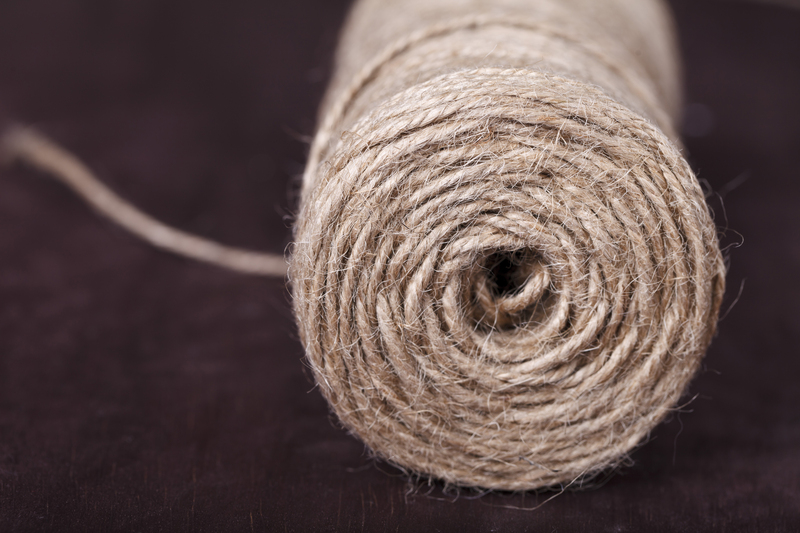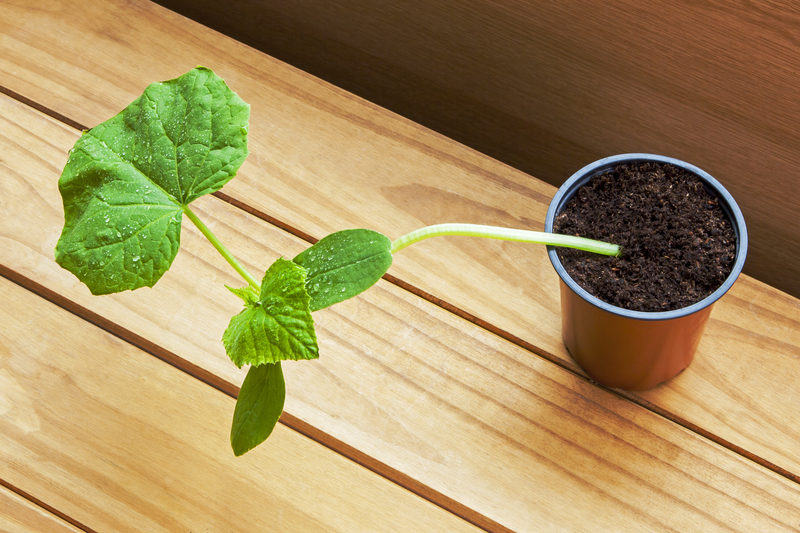9 Simple Yet Effective Gardening Tips for Beginners
Posted on 10/09/2025
9 Simple Yet Effective Gardening Tips for Beginners
Starting a garden can be both exciting and a little intimidating, especially if you have never planted so much as a seed before. Luckily, with a handful of straightforward and practical gardening tips for beginners, you'll be sowing, watering, and harvesting with confidence in no time. Whether you have a large backyard or a modest balcony, these easy-to-follow suggestions will give your plants the best chance at thriving and provide you with a fulfilling hobby for years to come.
Why Beginner Gardeners Should Start With a Plan
Planning is key to gardening success. Before you even touch the soil or buy seeds, spend some time considering your goals, conditions, and available space. Here's what you should think about:
- Sunlight Exposure: Does your chosen spot receive full sun, partial shade, or full shade?
- Climate: What is your USDA Hardiness Zone or local climate pattern?
- Soil Quality: Is your soil clay, sand, loam, or a mix? Can you access compost or organic matter?
- Available Time: How much time can you realistically maintain your garden each week?
By answering these questions early on, you'll ensure your garden is both manageable and rewarding.

1. Start Small and Simple
The most important gardening tip for beginners is to avoid overextending yourself. A few well-chosen plants or a single raised bed can provide a satisfying harvest without becoming overwhelming.
- Container gardening is fantastic for limited spaces.
- Try a herb garden on your kitchen windowsill.
- Begin with easy-to-grow vegetables, such as radishes, lettuce, or beans.
Focus on quality, not quantity. As you gain confidence, you can gradually expand your garden.
2. Choose the Right Plants for Your Area
Not all plants thrive everywhere. The best gardening tip for beginners is to select plants that match your location and climate. Check local gardening center recommendations or reference books. Always take note of:
- Hardiness zones for vegetables and flowers
- Frost dates--when to plant and harvest
- The mature size of each plant
- Specific water and sunlight needs
By planting species adapted to your environment, you'll make gardening easier and more enjoyable.
3. Prepare Healthy Soil--the Foundation of a Thriving Garden
Great gardens start with great soil. If you want a lush and productive garden, invest time in soil preparation. Here are some essential steps:
- Test your soil: Use an inexpensive home kit to check for pH and nutrient levels.
- Add organic matter: Mix in compost, well-rotted manure, or peat moss to enrich poor soil.
- Loosen the earth: Turn soil with a spade or fork to aerate and break up clumps.
Healthy soil retains moisture, provides balanced nutrients, and supports beneficial microorganisms--all crucial for beginner gardening success.
4. Practice Smart Watering Techniques
Overwatering is one of the most common mistakes for new gardeners. Here are some smart watering tips for novice gardeners:
- Water deeply, but infrequently: Aim to keep the soil moist 6-8 inches below the surface.
- Water in the early morning: Prevents evaporation and fungal diseases.
- Use a soaker hose or drip irrigation to minimize splashing and water waste.
- Check the soil with your finger before watering--if it's still damp, wait another day.
Learning when and how much to water is among the best beginner gardening tips. Plants are more likely to survive periods of drought if they develop deep root systems.
5. Mulching for Moisture and Weed Control
Mulch is a beginner gardener's best friend. A 2-3 inch layer of organic mulch (such as shredded bark, straw, or grass clippings) offers multiple benefits:
- Retains soil moisture and reduces the need for frequent watering
- Suppresses weed growth--less back-breaking labor for you!
- Prevents soil erosion and nutrient leaching from rain or watering
- Improves soil structure as it decomposes
Always avoid piling mulch directly against plant stems. Proper mulching is a garden care tip that pays off all season long.
6. Start Composting--Turn Kitchen Scraps Into Garden Gold
Composting is one of the most simple and sustainable gardening tricks for beginners. By recycling kitchen scraps and yard waste, you create a nutrient-rich amendment that makes plants thrive and helps the environment.
Compostable materials include:
- Fruit and vegetable peels
- Coffee grounds and filters
- Eggshells
- Grass clippings and leaves
Mix "greens" (wet, nitrogen-rich materials) and "browns" (dry, carbon-rich materials) for best results. Stir your compost occasionally and keep it slightly moist. In a few months, you'll have homemade fertilizer that improves soil and saves money!
7. Regular Maintenance--Weed, Prune, and Monitor
Even the simplest garden needs regular care. Maintaining your garden is about consistency, not perfection. Some essential maintenance gardening tips for new gardeners include:
- Weeding regularly: Remove weeds before they compete with your plants for nutrients.
- Prune plants as needed: Trim dead, diseased, or overcrowded stems and foliage to keep plants healthy.
- Check daily for pests and diseases: Early intervention is key to preventing larger problems.
- Stake or support taller plants to protect them from wind and rain.
A few minutes each day can make a big difference and prevent bigger issues down the road.
8. Learn About Companion Planting
Companion planting is a traditional gardening practice that makes use of nature's pairings. Certain plant combinations help repel pests, boost growth, or improve flavors. Some classic examples:
- Tomatoes & Basil: Basil can help deter harmful insects and enhance tomato flavor.
- Carrots & Onions: Each mask the scent of the other's pests.
- Marigolds deter aphids and nematodes in many vegetable gardens.
Do a little research to find out which plants thrive together in your beginner garden. It's an easy gardening tip that can lead to healthier, more productive growth.
9. Be Patient and Keep Learning
Finally, remember that gardening for beginners involves patience. You'll make mistakes, but that's all part of the journey. Celebrate your successes--no matter how small--and learn from setbacks rather than getting discouraged.
- Keep a garden journal: Jot down planting dates, weather conditions, and observations.
- Join local gardening clubs or online forums for shared experiences and expert advice.
- Read books, watch videos, and follow gardening blogs to continuously expand your skills.
Every season brings new lessons. Each seed sown is an investment in your skills and satisfaction!
Bonus: Essential Tools Every Beginner Gardener Should Own
- Hand trowel and cultivator
- Quality pruning shears
- Gardening gloves
- Watering can or hose with spray nozzle
- Sturdy hoe or weeding tool
- Compost bin or pail
Invest in a few good tools and keep them clean and sharp. Quality equipment makes every job easier.

Gardening Mistakes Beginners Should Avoid
Even with simple gardening tips, it's easy to run into trouble. Common beginner mistakes include:
- Planting too early or too late in the season
- Ignoring plant labels or care instructions
- Overcrowding--plants need space to breathe and grow
- Using excessive fertilizers (which can burn roots)
- Neglecting consistent watering or proper mulching
Take time to learn and observe your garden--your efforts will be rewarded!
Conclusion: Enjoy the Fruits (and Flowers) of Your Labor
By embracing these 9 simple yet effective gardening tips for beginners, you'll foster a flourishing green space that delivers beauty, fresh produce, and peace of mind. Start small, equip yourself with quality information, and cultivate your curiosity as much as your plants. Every gardener starts as a beginner, and with each season, your confidence--and your garden--will continue to grow. Happy gardening!
Frequently Asked Questions About Beginner Gardening
- Q: What are the easiest plants for beginners?
- A: Lettuce, beans, radishes, marigolds, and herbs like mint and basil are all beginner-friendly thanks to their quick germination and minimal maintenance needs.
- Q: How often should I water my garden?
- A: Most gardens need deep watering once or twice a week. Check the soil before watering--overwatering does more harm than underwatering!
- Q: Why is soil preparation so important?
- A: Healthy soil = healthy plants! Well-prepared soil provides the nutrients and structure roots need to thrive and is the backbone of successful gardening for new gardeners.
- Q: Can I garden if I only have a balcony?
- A: Absolutely! Container gardening is perfect for balconies or patios. Just make sure your pots have good drainage and your plants receive enough sun.
Ready to start your gardening journey? Remember these simple gardening tips for beginners and watch your garden--and your confidence--grow, season after season.



